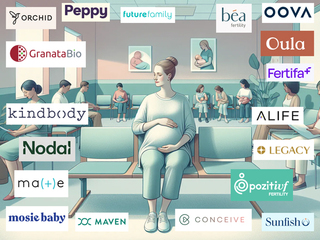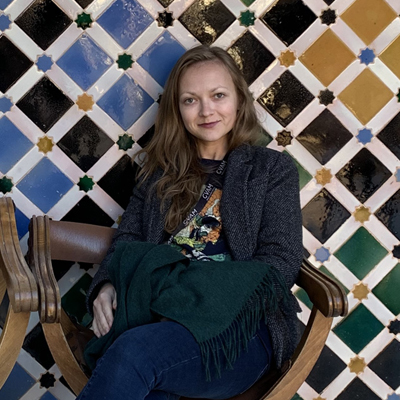In the aftermath of the Roe v. Wade overturn, U.S. fertility clinics (and patients alongside them) are battling an unlikely complication in the form of new laws. Last month, the Alabama Supreme Court ruled that frozen embryos qualify as children, imposing legal liability on IVF patients and providers. Thankfully, the state’s Republican governor signed a new bill last week, giving criminal immunity to the industry’s professionals and potential parents.
This controversial battle is bound to get worse before it gets better as a dozen other states in the U.S. have pending bills that establish the embryos’ personhood. Should these laws go into effect, the $8.9 billion market will be shaken up and have to restructure in anticipation of a liberalization of the matter.
This is happening amid growing demand for fertility services as people increasingly delay parenting and pursue education and careers first. New moms’ median age has increased, and so did the infertility rates. Topped with the increasing awareness and availability of cutting-edge solutions, the fertility market has proliferated even amid the overall downturn. These fertility services include in vitro fertilization (IVF), surrogacy, the freezing of the eggs, sperm, and embryos, intrauterine insemination (IUI), testing, and others.
In this piece, let’s look at a few big and small fertility startups disrupting the industry and attracting investors in today’s challenging environment. Specifically, we’ll zoom in at startups that raised capital within the past two years, see what they’re doing and who’s backing them.

Femtech and more
Women-owned Kindbody, launched in late 2018, raised $125 via several rounds in 2023, and it’s been looking to raise additional capital. The NYC-based women’s healthcare and “family-building” company provides egg freezing, IVF and conception, holistic care, egg donorship, and oncofertility services – and it partners with companies to provide related coverage for their employees.
With the new funds, Kindbody seeks to expand across more U.S. states. Plus, the company’s been dealing with larger-than-expected operating losses and pushed for extra profitability practices, as reported by Bloomberg. The startup is also reportedly eyeing an IPO. Kindbody has been backed by Morgan Health, Perceptive Advisors, GV (Google Ventures), RRE Ventures, Claritas Capital, and others.
Last week, Kindbody released a comment on the Alabama ruling update. “Reducing barriers to high-quality reproductive healthcare is our North Star at Kindbody, and as reproductive physicians it is our life’s work,” CEO Angeline Beltsos said in the statement.
“While we are pleased with the recent decision, we remain fiercely vigilant that reproductive healthcare is under threat in this country. We will continue to closely monitor the regulatory landscape and will be prepared to act swiftly in the best interest of our patients, clients, and their employees. Our mission of making fertility and family-building care accessible for all has never been more critical than it is today,” Beltsos said.
Another women-led New York startup, Oula, raised $28 million Series B in February 2024 following its $19 million fundraising a year ago. Oula is redesigning maternity care, from obstetrics to midwifery, and aims to fill the gaps in healthcare access, with a special focus on equity and non-discrimination. Oula works with most major insurance plans and prepares to expand its maternity centers beyond New York. Oula investors include Revolution Ventures, Maverick Ventures, Alumni Ventures, and the aforementioned GV, to name a few.
Here’s Pozitivf, a San Antonio, CA-based clinic that raised $20 million in a recent round led by MonCap. The startup offers IVF and other fertility procedures at costs lower than average, aiming to make fertility care accessible to more families.
Boston startup Granata Bio scored $14 million in a January 2024 Series A round led by the aforementioned GV. The startup addresses women’s health and the infertility issue by identifying, optimizing, and developing new fertility therapies. The startup currently has five therapies in its portfolio pipeline.
Reproductive tech startup Orchid raised $12 million at the end of 2023. The company screens embryos by carrying out a whole genome analysis to detect genetic errors linked to severe diseases before an IVF pregnancy. Orchid attracted prominent investors including 23andMe’s Anne Wojcicki, Figma’s Dylan Field, Coinbase’s Brian Armstrong, as well as Prometheus Fund and Refactor Capital.
On the Canadian side, there is Quebec-based Genoscience, which provides genetic screening and counseling services. The company, founded in 2016, operates a network of private clinics providing prenatal genetic tests, as well as a digital private clinic Genolife for patients throughout Canada for virtual counseling across genetics and hereditary risks in preconception and fertility care.
Mate Fertility, aiming to democratize fertility care and offering various treatments, closed its $5.2 million Series A in May 2023. Mate clinics, with headquarters in Oklahoma City, provide training for OB-GYNs on innovative services such as egg retrievals and IVF. The startup then takes a percentage of the trained professionals’ top-line revenues. The company runs a handful of clinics in Oklahoma, Texas, and California, and is expanding to more cities. Investors in Mate include Struck Capital, Cortado Ventures, Revolution’s Rise of the Rest Seed Fund, What If Ventures, and more.
Online & at-home solutions
Here’s another NYC startup: Maven Clinic, founded in 2014 by Kate Ryder, scored $90 million in late 2022. Maven is a telehealth platform that provides services for mothers and families during conception, throughout pregnancy, surrogacy, adoption, pediatrics, and postpartum. Maven also partners with companies to provide all-inclusive employee support. General Catalyst and CVS Health Ventures are among the investors in Maven. On a side note, Ryder invested in the aforementioned Nodal.
Oova secured $10.3 million Series A capital in mid-2023. The company operates a network of over 100 clinics and offers an at-home urine test for measuring luteinizing hormone and progesterone to identify fertile days. The startup has an AI-powered mobile app for tracking and aims to help women understand their bodies. Spero Ventures led the Series A round.
Inito, based in India, is doing something similar with its hormone urine tests. This startup raised $6 million in November 2023 in a round led by Fireside Ventures.
Here’s a London startup, called Bea Fertility. In mid-2023, it raised $3.2 million from investors including Octopus Ventures, JamJar Investments, Forward Partners, Calm/Storm, and Q Ventures. Founded in 2020, Bea is disrupting the fertility scene by making clinical-grade care available at home – it offers Intracervical Insemination (ICI) treatments alongside embryologist-led support for at-home insemination. In short, these treatments increase the chances of sperm meeting the egg for people who are struggling to conceive. The latest round helped make its Treatment Kits available to the public via its online platform. Bea calls its fertility treatment the most affordable on the market.
On the U.S. side, Mosie Baby gained $1 million in September 2023 for its FDA-cleared at-home intravaginal insemination kit. As its website states, Mosie is “designed by women with insight from a fertility specialist […] patented and designed for comfort.”
Another U.K. startup Peppy raised $45 million in early 2023 in a Series B round led by AlbionVC. Peppy also runs a digital health platform for enterprises and their employees, with a focus on menopause and fertility services, but also inclusive of men’s and women’s holistic health. According to its website, it has served 350 businesses and 3 million employees. With the new capital Peppy said it planned to establish U.S. presence.
Peppy has another startup competitor in London, Fertifa, which scored $6.3 million last year from investors including Notion Capital and Triple Point Ventures.
Back to New York now, digital fertility platform Conceive raised $3.7 million seed in April 2022. Conceive offers 24/7 texting with a nurse, coaching from someone who’s been there, evidence-based fertility and pregnancy advice, and a warm spot in the community of people going through similar situations. In short, this platform is taking the loneliness out of the pregnancy journey and offering all the digital kinds of support while at it.
For male fertility solutions, there’s Legacy, based in NYC. The platform offers at-home sperm test kits, semen analysis and cryopreservation. Patients get the kits delivered to their homes, collect samples and mail them back to Legacy for analysis or preservation. Telehealth appointments are then scheduled for further discussion. Legacy scored $25 million Series B in May 2022. Bain Capital Ventures led the round; First Mark Capital, Section 32, and TQ Ventures participated.
For surrogates and parents, there’s a platform called Nodal, which scored $4.7 million in September 2022 from investors including Amplo. The platform connects surrogates with intended parents, screened via background checks and live interviews. Once approved, users fill out their profiles and pay a monthly fee; surrogates and parents communicate online similar as on a dating site.
Beyond medical care
On the financing side of fertility, there’s Future Family, which raised $25 million in its Series B in April 2022. The company, based in San Francisco, offers loan plans for fertility procedures, lab work, and medications at rates as low as 0% APR in some cases. In a world where fertility care such as IVF are quite costly ($15,000 average cost per cycle), it seems financing should be a must-option. Munich Re Ventures, TriVentures, and Aspect Ventures are among a slew of investors in Future Family.
Another financial aid tool, Sunfish, based in Santa Monica, raised $4 million in early 2023. It offers loan options for IVF, surrogacy, and freezing services with a 90% refund should the procedure be unsuccessful. The startup is backed by Walkabout Ventures, Hannah Grey VC, and Fiat Ventures, and is led by Angela Rastegar.
Enter also Alife Health, which makes AI-powered tools to help clinicians, embryologists, and clinic managers make decisions about a range of fertility treatments including IVF. The aim is to apply Alife Health’s datasets to analyze and create a personalized patient treatment plan while lowering the costs.
For example, Alife Health’s machine learning model could help doctors choose the optimal trigger day for a patient to make IVF more effective. The San Francisco-based startup, operating since 2020, raised $22 million in Series A in March 2022, and is backed by Lux Capital’s Deena Shakir. Last year, Alife Health launched a free mobile app for IVF patients, which makes it easy to track test results, medication, and appointments. In February, Alife Health announced it partnered with one of the top five U.S. IVF providers – Ovation Fertility, to build embryo image cataloging software.
To wrap up, while there are many more fertility startups I failed to mention in this story, I hope it presents a comprehensive overview of the services’ focus and progression. To recap some trends in the fertility space, inclusivity and accessibility are the two that seem to stand out the most. Many of these startups, while offering a wide range of services, seek to bridge the gaps and democratize fertility care.
Indeed, these tech-savvy and forward-looking entrepreneurs and their teams stand in stark contrast to the conservative and anti-choice anti-abortion legislation.
Image: Wowzer AI


















